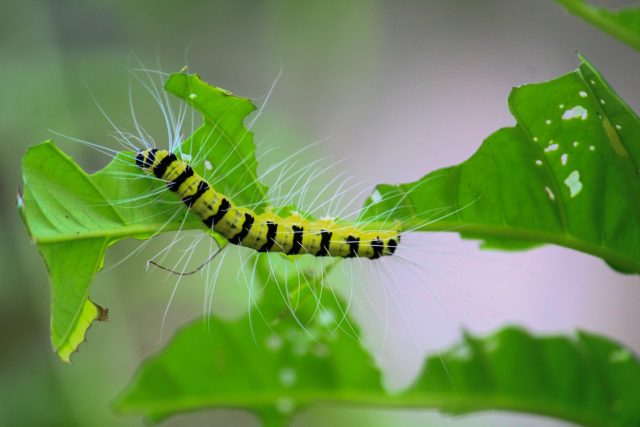Garden Pests
Gardening is a beloved hobby for many people, but unfortunately, it can also come with unwelcome guests. Garden pests are one of the most common problems that gardeners have to face. These pests can range from small insects to larger mammals and can cause destruction to plants and vegetables. The damage caused by these pests can be costly and time-consuming to repair, so it’s important to understand which animals and insects could be damaging your garden and how you can protect it.
Types of Garden Pests
Gardening is a popular hobby that can bring people great joy, but it also has its fair share of challenges. One of the biggest obstacles gardeners face is garden pests. Garden pests come in many shapes and sizes, making it important for gardeners to stay informed about them so they can protect their plants. Common types of garden pests include insects such as caterpillars and Japanese beetles, rodents like gophers and moles, birds like starlings and crows, and even deer or rabbits. These animals eat away at foliage or tunnel through soil in search of food or shelter. Additionally, diseases caused by fungi such as rust or powdery mildew can take hold on leaves and stems if humidity levels are high enough for spores to germinate. Knowing what type of pest is causing damage is essential for effective pest control solutions.
Prevention Techniques
Gardening is a rewarding hobby, but it can quickly be ruined by pests. Many gardeners have found themselves overwhelmed by the amount of damage that these creatures can cause to their plants. Thankfully, there are several preventative techniques available to help keep pests away from your garden. The first step towards preventing pest infestations in your garden is making sure you use quality soil and mulch when planting. Using healthy soil and mulch helps create an environment where beneficial insects thrive while discouraging harmful ones from taking up residence in your plants. Additionally, using cover crops or companion planting will provide natural barriers against potential pest attacks and give beneficial organisms the chance to flourish. Finally, setting up barriers around your garden can also be effective for keeping out unwanted guests.
Natural Control Methods
Organic gardening is becoming increasingly popular as gardeners strive to create a natural environment that is free of pests and other harmful agents. Natural control methods are the best way to keep your garden free from pests while still being gentle on the environment. These methods involve using natural ingredients or practices to deter or eliminate unwanted insects and other creatures. One example of a natural control method is companion planting, which involves strategically planting certain plants together in order to ward off pests. For instance, herbs such as basil and chives can help repel aphids when planted near susceptible plants like roses. Similarly, interplanting with strong-smelling vegetables like onions can deter cabbage moths from laying eggs on nearby cabbage and broccoli plants. Additionally, introducing beneficial bugs into your garden can help keep pest populations in check without having to resort to chemical treatments.
Chemical Control Options
Chemical control is a popular option for controlling garden pests, but it should be approached with caution. Chemical control involves using products that contain active ingredients designed to repel or kill insects, weeds, or fungi. These chemicals can be found at your local garden center in the form of sprays, granules, or dust. Before applying any chemical to your garden you should always read the label carefully and follow all safety instructions as some products need special protective gear when applied. It’s also important to make sure your chemical product is labeled for use on the specific kind of pest you’re trying to control.
DIY Pest Control Methods
DIY pest control methods are a great way to combat pesky pests in your garden. If you’re looking for an affordable and environmentally-friendly solution to your garden’s insect invasions, then look no further than these DIY pest control methods. From making homemade bug spray to introducing beneficial insects into the garden, there are many options available. By making your own bug spray, you can effectively get rid of insects like aphids, mealybugs, and spider mites without exposing yourself or your plants to harsh chemicals. You can mix water with mild dish soap and garlic extracts for an effective all-natural bug spray that won’t damage the environment or harm any beneficial insects that may be present in the garden. Additionally, you can introduce certain species of beneficial bugs such as ladybugs into the garden which will help keep populations of harmful insects under control.
Cleaning Up After an Infestation
Cleaning up your garden after an infestation of pests can be a daunting task. It can take a lot of hard work and dedication to restore the beauty of your garden back to its original state. Fortunately, there are some simple steps you can take to make the process easier. Start by removing any dead plants or debris from the area. This will give you a blank canvas from which to begin restoring order in your garden. Next, use an insecticide to get rid of any remaining pests or eggs. Take extra care when handling insecticides as they may be toxic if inhaled or swallowed. Finally, introduce beneficial insects that feed on pest larvae into the environment and help keep future infestations at bay.
Effective Pest Management
In conclusion, effective pest management is an important part of keeping a property safe and secure. In order to successfully manage pests, it is important to understand the species of pests present, identify their potential risks, and take preventive steps before an infestation occurs. Prevention is always the best approach because it helps reduce the number of resources necessary for pest control in the long run.






























